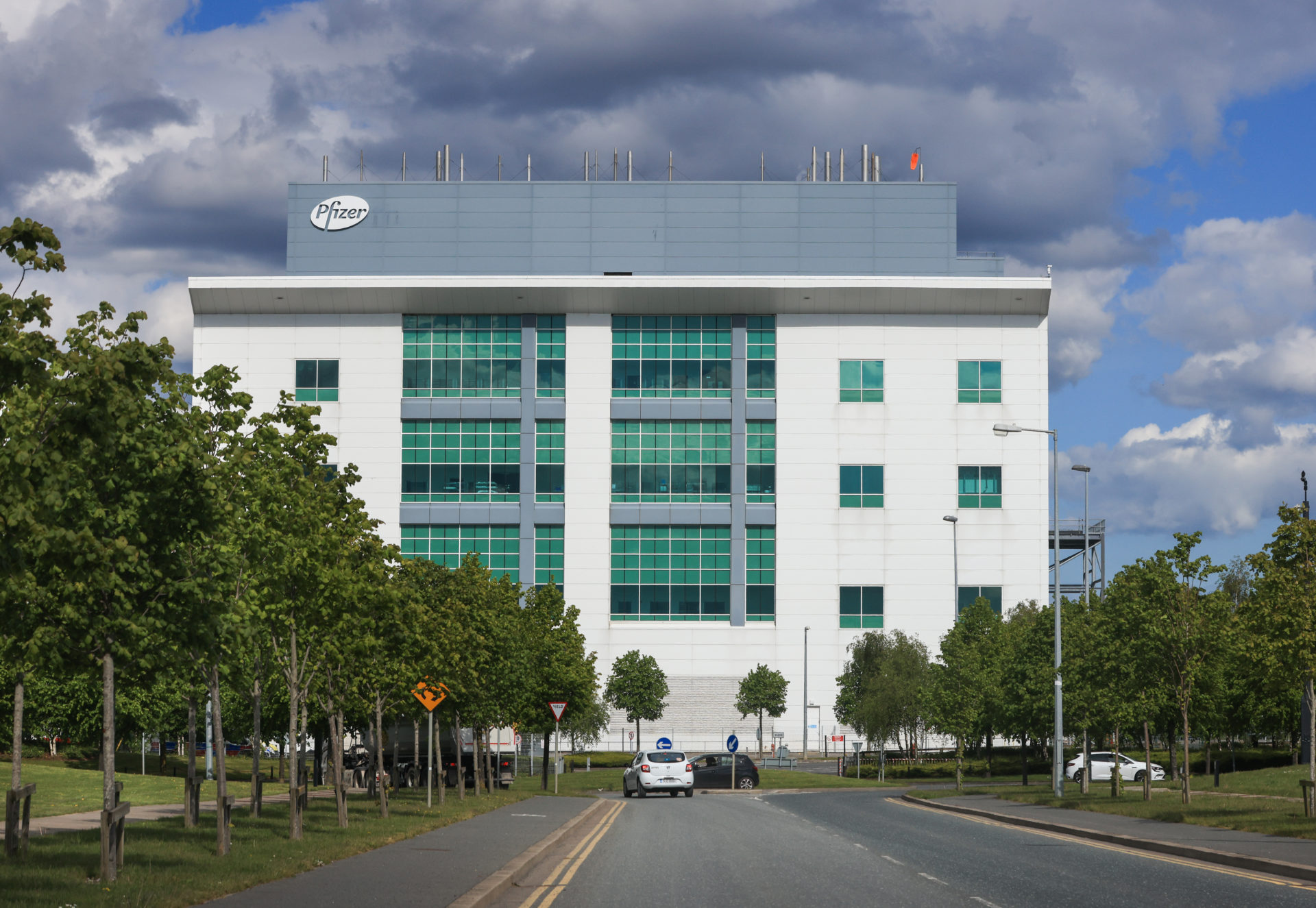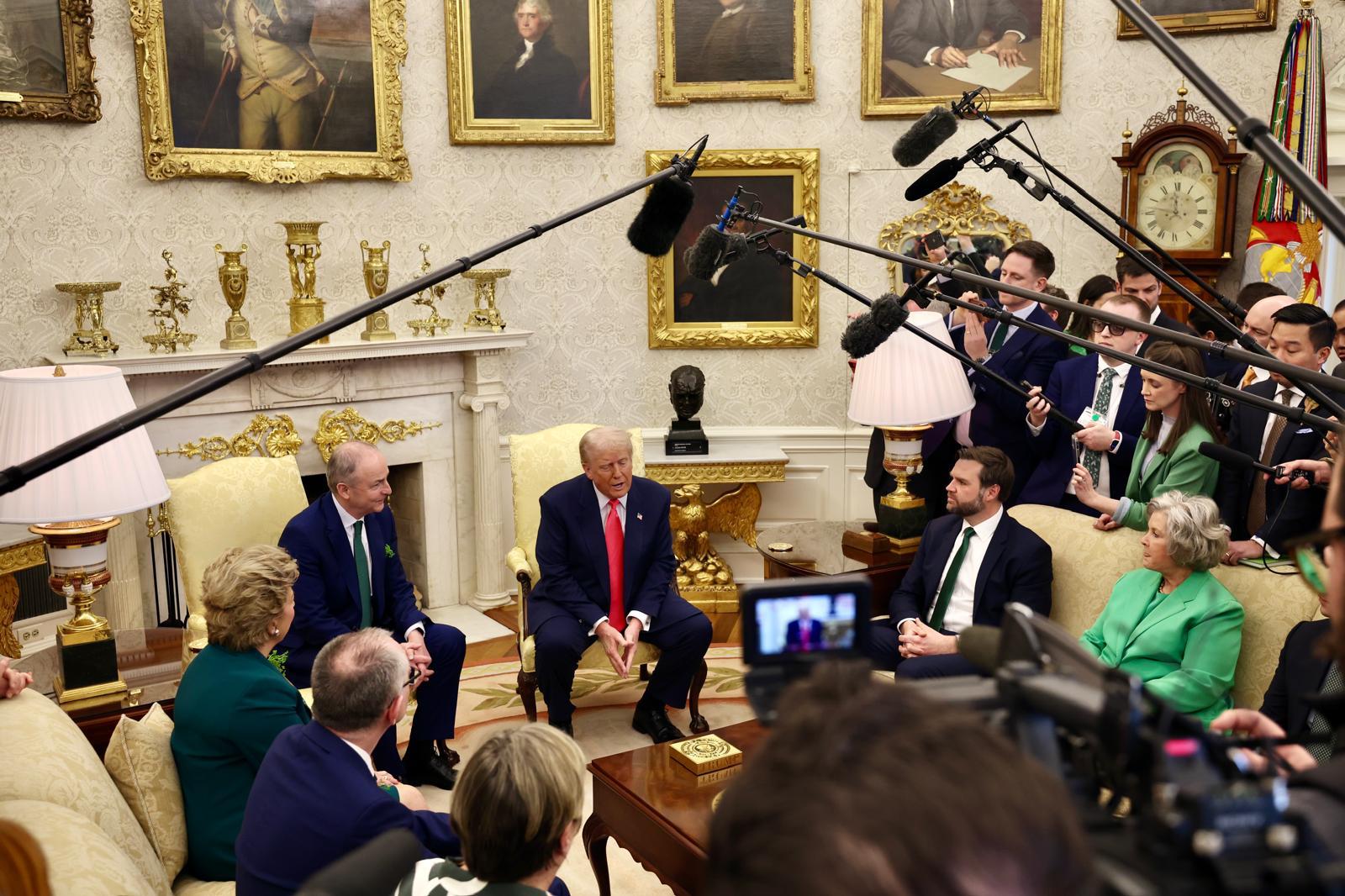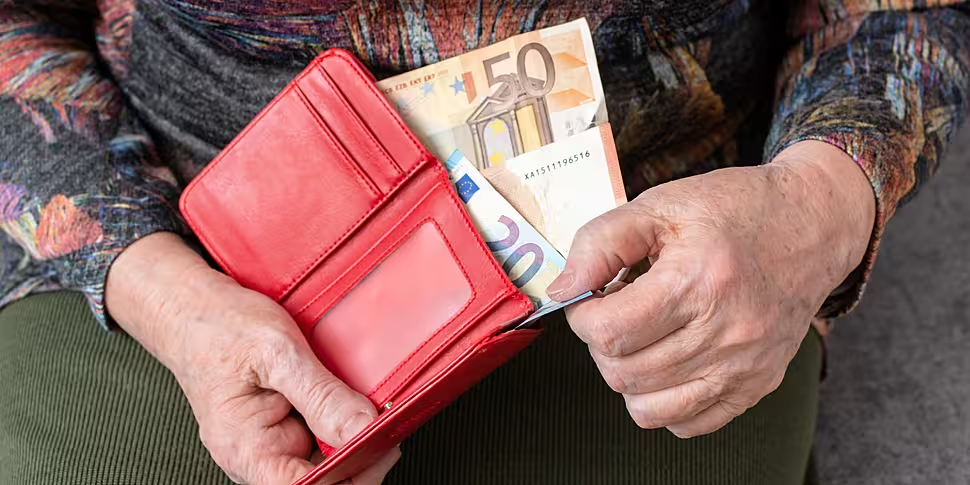Tax revenue previously used to fund cost of living measures should instead be spent on helping business, IBEC has argued.
With potential tariffs of up to 30% on all Irish imports into the US looming, the organisation has warned that the “global environment has changed” and demanded the Irish Government do more to support business.
On The Pat Kenny Show, IBEC chief economist Gerard Brady predicted the economy is likely to soon enter a rough patch.
“We’re entering a really challenging place and one of the things that we’re calling out is the tax that has allowed us to spend all that money in recent years,” he said.
“There is a lot more uncertainty in the current environment… about the future of that.
“What we’re saying is we need to respond to the global environment; we need to see a budget that is strategic, it’s about keeping jobs in the country, about growing the economy by investing in infrastructure, in skills, in innovation.
“And making sure that the sectors and workers who are going to suffer from tariffs - whether they’re 10% or 30% - have new options.”
Last year, trade between Ireland and the US amounted to around €73 billion.
Thanks in large part to the popularity of Irish pharmaceutical products, Irish imports into the US amounted to €50 billion of that - a huge trade surplus.
 A Pfizer plant in Grange Castle, South County Dublin. Picture by: Eamonn Farrell / RollingNews.ie
A Pfizer plant in Grange Castle, South County Dublin. Picture by: Eamonn Farrell / RollingNews.ieTánaiste Simon Harris has warned 30% tariffs would “in many ways stop trade as we know it” and Mr Brady agreed it would have a dramatic impact on the economy.
“Certainly, 30% would be really challenging for lots of sectors and the people who work in them,” he said.
“30% would not be an end but a very, very challenging vista for anyone trying to sell into the US market - which is important.
“Even 10%... even that would be challenging for lots of sectors.”
 Photograph of Taoiseach Micheál Martin with US President Donald Trump in the Oval Office. Picture by: Tasos Katopodis / Government of Ireland.
Photograph of Taoiseach Micheál Martin with US President Donald Trump in the Oval Office. Picture by: Tasos Katopodis / Government of Ireland. In recent years, the Irish Government has funded a significant number of social welfare measures to help offset the cost of living crisis.
Double child benefit payments were arranged, energy credits were given to all households and some pensioners were entitled to one off payments.
It is time, Mr Brady urged, for the Government to reconsider whether the country can afford to continue with such expensive policies.
“We need to pick measures that underpin activity which allows us to pay for lots of things across the economy,” he said.
“Like the one off payments had a weak enough defence of them in the first instance when they were universal.
“We have four, five years till an election, so if we’re not going to do this now, if we’re not going to make sure that we do the strategic things right now… then I think we’re storing up trouble for the next number of years.”
Mr Brady added that while such decisions might be “politically difficult”, in his conversations with officials the “soundings were good”.
Main image: An elderly pensioner with some cash. Picture by: Alamy.com.









